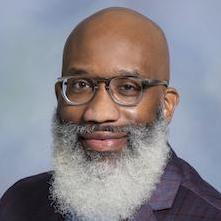 A new study led by Tony Brown, a professor of sociology at Rice University in Houston, Texas, finds a rise in racial apathy — in other words, not caring about racial inequality — among young White adults.
A new study led by Tony Brown, a professor of sociology at Rice University in Houston, Texas, finds a rise in racial apathy — in other words, not caring about racial inequality — among young White adults.
“In the time of Jim Crow, there was blatant hatred and blatant acts of discrimination,” Professor Brown said. “Now today, racial apathy says basically, ‘I don’t care about racism, it’s not my issue.’ It is subtler and more socially acceptable.”
The researchers used data from the National Study of Youth and Religion survey of young White adults over a five-year period to assess changes in racial apathy by analyzing variables such as social background, social values, academic orientation, and interracial contact. They found that young Whites increasingly believe that Black people no longer experience prejudice in today’s world.
The authors theorized that social media has created superficial or performative interracial relationships that make young White people feel like they’ve done enough to abate racism. Also the rise in interracial dating has resulted in the belief that racism is a thing of the past. Consequently, young Whites care less about racial inequality.
Professor Brown joined the faculty at Rice University in 2016 after teaching at Vanderbilt Univerity in Nashville. He is a graduate of the University of Maryland Eastern Shore and holds a master’s degree and a Ph.D. in sociology from the University of Michigan.
The full study, “Changes in Racial Apathy Among White Young Adults: A Five-Year National Panel Study,” was published on the website of the journal Sociological Inquiry. It may be accessed here.












I wonder if it’s not so much apathy as an increasing desire to not see racism in absolutely everything and a desire for a more balanced dialogue. I think, perhaps naively, that most Americans do not have racist thoughts top of mind all the time. But there’s an insistence the part of the media to make it so.
I could not agree more.
The Media Gives Positive Factual Information About Racism Which Put Certain Individuals In Denial. It’s Synonymous With Those Who Don’t Want C.R.T.,TAUGHT. & IT DOESN’T MATTER, THE TRUTH WILL BE REVEALED ANYWAY
What does a ‘more balanced dialogue’ mean? Name the systems that are unaffected by racism. Did the authors suggest that racism explains everything? Are you suggesting that it is okay for some racism to exist, as long it is out of sight and out of mind? We have been dialoguing about racism for 500+ years. The existence of racism to any degree is unacceptable. Also, perceptions do not change the real material effects of structural and systemic racism. So-called non-racist people can and do live and work within racist systems and institutions, and the hard truth every social system in the US is shaped by race and racism. There is a tendency to reduce racism to individual feelings and psychology. It would be interesting to see if those folks who ‘do not have racist thoughts top of mind all the time’ follow through with their actual behavior or whether their behaviors support things like residential segregation, employment discrimination, unequal access to quality education (through opportunity hoarding), voting (many educated White women voted for Trump), and so on. Bottom line: perceptions and attitudes do not always align with practice and systemic reality.